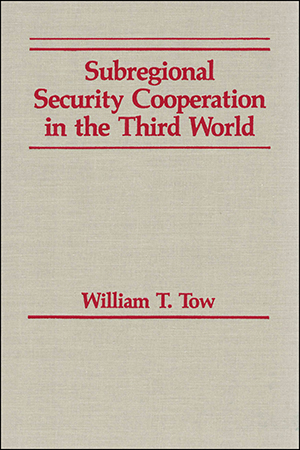
- 1990/155 pages
Subregional Security Cooperation in the Third World
Tow assesses the extent to which five SRSOs—the Association of Southeast Asian Nations (ASEAN), the Gulf Cooperation Council (GCC), the Organization of East Caribbean States (OECS), the Southern African Development Coordination Conference (SADCC), and the South Pacific Forum (SPF)—have succeeded in meeting commonly defined security threats, in ameliorating their members' political and economic vulnerabilities, and in compelling the major powers to accept the legitimacy of their regional security agendas. He also considers more general questions of "regional" vs. "subregional" security and the regime characteristics that have contributed to the formation of SRSOs. His final chapter focuses on the significance of SRSOs in the context of broader security issues.





